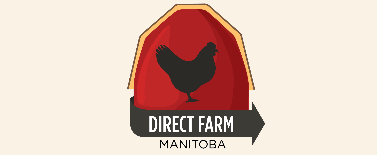Death and the Environment
 Tuesday, December 10, 2013 at 5:48PM
Tuesday, December 10, 2013 at 5:48PM By David Dawson
Many readers will no doubt already be concerned about the environment. Hopefully this Rethinking Lifestyles column will encourage more people to join ‘transitioners’ in considering what we humans are doing to our planet Earth. That, after all, is the first objective of South Eastman Transition Initiative. The second is, of course, to do something positive about it.
It is said that there are two unavoidable things in life, namely death and taxes. We often complain about our taxes, especially about how the politicians waste our hard-earned money, but for some reason most people don’t like to talk about death, particularly their own. But not me. In a world of 7+billion people there are approximately 250,000 deaths every day.
In Europe cremation appears to be preferable to burial, most likely because of space. However, environmentally, cremation is not a good choice. Consider this: if you put a large pot of water on your stove to boil, how long, or rather, how much energy does it take to vaporize that amount of water. It’s a lot, and the human body being 90% water is equivalent to about 20 gallons of water. How much gas would you have to burn on your kitchen stove to boil off 20 gallons. Each cremation takes the equivalent of about one 45 gallon barrel of oil, and that creates a lot of CO2 going into the atmosphere.
Burial on the other hand, especially as we do it in Canada, is also very bad environmentally. Most bodies are embalmed and that involves a lot of chemicals being injected into the body. Generally about 2 gallons of formaldehyde solution is injected into the veins and arteries to replace the blood. Internal organs are emptied and a strong chemical body-fluid is injected instead. Various creams, glues and mastic compounds are used to improve the ‘look’ for open-coffin viewing. Although the body is dressed in normal clothes, frequently plastic underwear is used to prevent embarrassing ‘leaks’.
So, not only are we burying all these chemicals that pollute the ground and potentially the ground water, there is also the question of the casket itself. Apart from the ridiculous cost (on average about $5000), thousands and thousands of trees are turned into these caskets, used once and then buried. What a waste of valuable resources! We complain that other countries are cutting down their rain forests but we happily buy their wood and then bury it! It’s ridiculous. Then there is all the varnish, screws, nails, brass handles and interior furnishings that are buried along with the casket.
Embalming is something promoted by the funeral industry and is usually totally unnecessary. For myself I have given instructions that I should NOT be embalmed. My body can be kept refrigerated until burial arrangements have been made and I will be buried wrapped in a shroud made from natural unbleached cotton, as was the norm 2000 years ago in Jerusalem. An alternative to a shroud is a cardboard casket that biodegrades quite quickly.
Thinking about your death ahead of time and setting out what you want, gives you the opportunity to opt for something simple and without pain for your family. Far better to set out your wishes than have your family led down the road of paying for the most expensive open casket on the market and all the unnecessary trimmings. Think about it!



Reader Comments